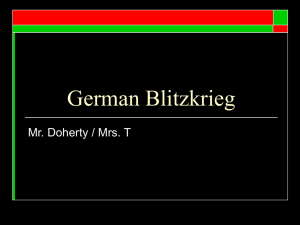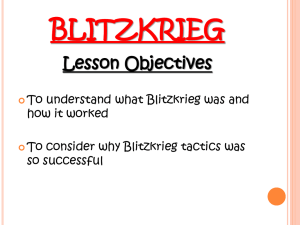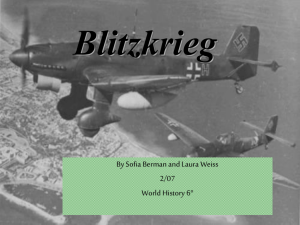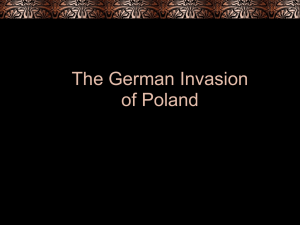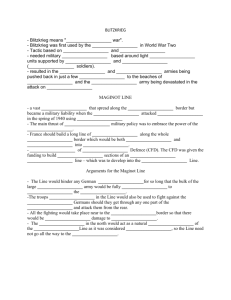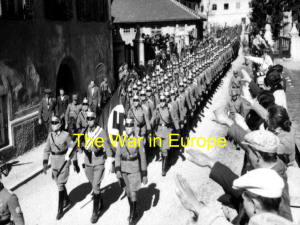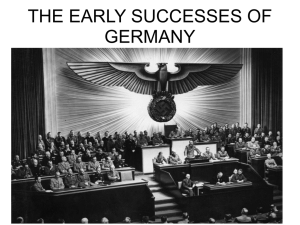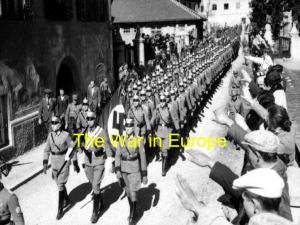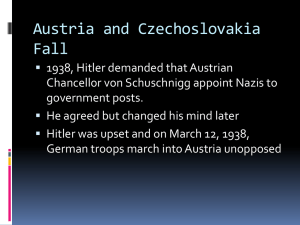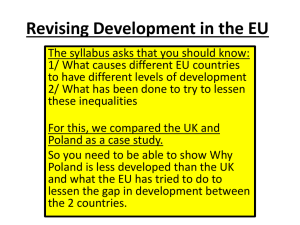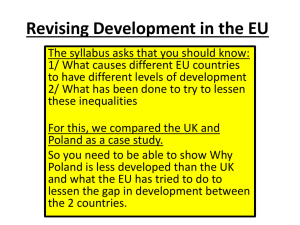Blitzkrieg & Sitzkrieg
advertisement
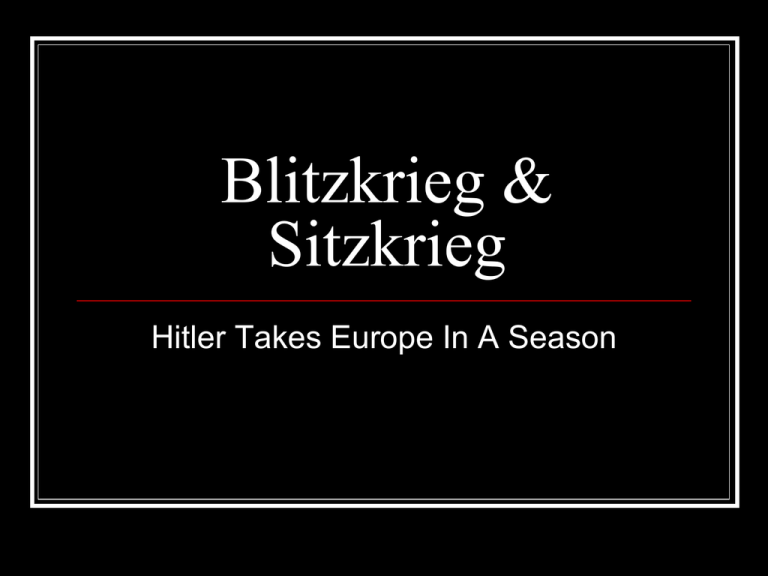
Blitzkrieg & Sitzkrieg Hitler Takes Europe In A Season Blitzkrieg Also known as “Lightning Warfare” An intense military attacked designed to bring about a swift victory Used by the Germans in World War II Elements of Blitzkrieg 1. Surprise 2. Psychological Warfare 3. Concentration of Firepower 4. Speed 5. Leadership from the Front 6. Co-odination The Theory of Blitzkrieg The tactic was developed by German army officer Hans Guderian Designed to hit hard and move on instantly It aimed to create panic amongst civilians The Theory of Blitzkrieg Once a strategic target had been selected, Stuka dive bombers were sent in to ‘soften up’ the enemy, destroy all rail lines, communication centres and major rail lines Done as the German tanks were approaching Planes would withdraw last minute so the enemy did not have time to recover Blitzkrieg Unleashed The German Air Force (Luftwaffe), tank divisions (Panzers), and the army (Wehrmacht) smashed into Poland Poland was the perfect target for a blitzkrieg attack A flat country with no natural obstacles; large out of date army September 1st 1939, surprise bombing raids began on Poland’s aerodromes Poland’s air force is destroyed Blitzkrieg Unleashed Luftwaffe began bombing raids on Poland’s railways and military convoys to disrupt mobilization German ground forces moved in from the North and South Poland’s army had nowhere to retreat The final blow came in midSeptember when the USSR invaded Poland from the East Blitzkrieg Unleashed Two days later, honouring their obligations to Poland, France and Britan declare war on Germany On September 9th 1939, Canada declares war on Germany The USSR invaded Poland from the East on September 17th under the terms of a secret pact with Germany Warsaw surrended on September 27. By october 6, Poland ceased to exist as a country. World War II had begun. Sitzkrieg Also known as “Phoney War” There was no fighting in Europe until Hitler turned his attention to the rest of Europe in April 1940 Prime Minister King & President Roosevelt hoped that Hitler would stop with Poland. They were sadly mistaken The Fall of European Nations In April of 1940 Denmark & Norway fall to Nazi Germany Soon after Holland falls to Nazi Germany Then on May 10th 1940 the Germans invaded France The Fall Of France German forces pushed through the Ardennes, outflanking the Maginot Line and unhinging the Allied defenders Paris was occupied on June 14 For Hitler, it was a spectacular victory The Effects of Blitzkrieg France was divided into a German occupation zone in the north and west, a small Italian occupation zone in the southeast, and a collaborationist government in the south, Vichy France The British Expeditionary Force and many French soldiers were evacuated from Dunkirk France remained under German occupation until after the Allies defeated the German forces in France following the Allied landings on D-Day 1944 The Rescue At Dunkirk Allied troops were trapped by an advancing German Army at Dunkirk With their backs to the sea and Germans closing in, Hitler’s army ceases to pursue their capture The Allies launch a massive rescue by sending 900 ships across the English Channel they save 14,000 French Troops and 200,000 British Troops The troops would form the core of the allied invasion that liberates Europe The Effects of Blitzkrieg Due to the success of Blitzkrieg the Nazis swept through Europe from Poland to the Atlantic in 9 months The Nazis now effectively held the mainland of Europe What was next…..?
